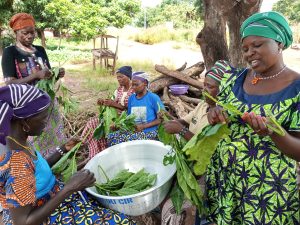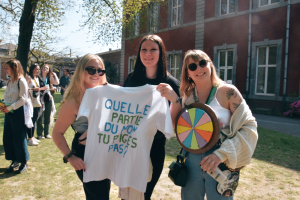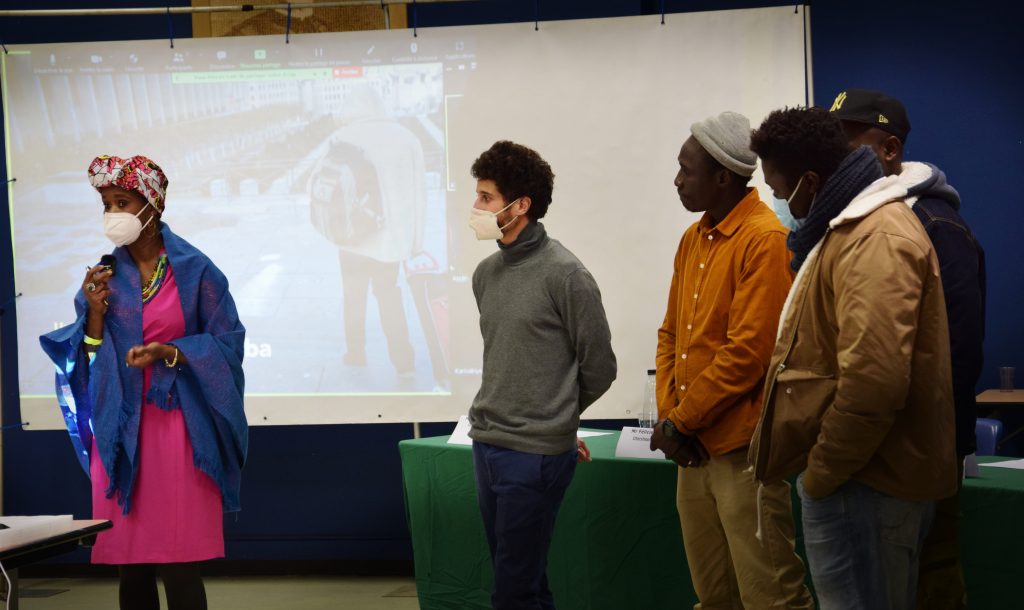- Andean region
- Bolivia
Interesting exchange of experiences between partners and...
Interesting exchange of experiences between partners and farmers of the impulSAS Bolivia programme in the central valley of Tarija

Equality between human beings, and more specifically between the sexes, is a key issue today. This is why Eclosio is committed to integrating the gender approach into all its actions, in partner countries as well as in Belgium. Moreover, gender relations cannot be dissociated from other relations of domination that may exist. That’s why the intersectional approach allows gender to be seen through the prism of others, such as race, class, sexual orientation, etc.
In our projects, we take into account issues relating to social relations between the sexes. The concept of gender is used as an analytical tool throughout all phases of the project cycle. It is important to analyse the needs and interests of each social group in order to define intervention approaches that help to reduce gender inequalities.

In the countries where we operate, this means, for example, paying attention to women’s excessive workloads (both productive and reproductive), their place in production systems and their difficulties in accessing resources. We therefore work to strengthen and secure women’s access to factors of production and quality agricultural plots. We also aim to ensure that women play a full and powerful part in public decision-making, and support the collective organisation of the demands they make.
In Belgium, our actions aim to raise students’ awareness of relations of domination, particularly those linked to inequalities between men and women. We equip them to make individual and collective commitments to an inclusive, sustainable, fair and supportive society.

Raising awareness of sexism at the Gembloux 6h wheelbarrow event
Through its experience, Eclosio takes a positive view of the dynamics of migration, which it has been working to promote for several years now. In Belgium, Eclosio has experience of promoting initiatives stemming from collaboration with the Senegalese diaspora and of sharing realities around the key themes of integration and multiculturalism, for example; as well as an educational and pedagogical position, thanks to its Citizen Education and Inclusive Knowledge Management divisions, by advocating an attitude of openness and tolerance, aimed at civil society and the student community.
In Senegal and Guinea, we are raising people’s awareness in order to reduce, on our own scale, departures linked to despair at a local situation that does not comply with human dignity, which can lead to tragedies of the kind that have been occurring on European and African coasts for several years now. At the same time, we are raising awareness of entrepreneurial and professional prospects and opportunities, with the aim of creating enriching and favourable anchorage and horizons, and encouraging the desire for long-term investment.
In Peru and Bolivia, we are attentive to new socio-territorial dynamics. Without denying the preponderance of the rural exodus or the risks it entails for the rural and urban world, we are studying in particular ‘circular internal migration’ (temporary or cyclical rural exodus) and its potential for strengthening urban-rural links in cultural and socio-economic terms.

Screening of the film “Tekki”, as part of the “Diaspora in Action” project, which worked with the Senegalese diaspora to deconstruct the myths surrounding migration.
We strengthen civil society organisations (CSOs) and support them in defending their rights of association and expression and in seeking to ensure the sustainability of their actions. To do this, we promote action within different platforms to contribute to :